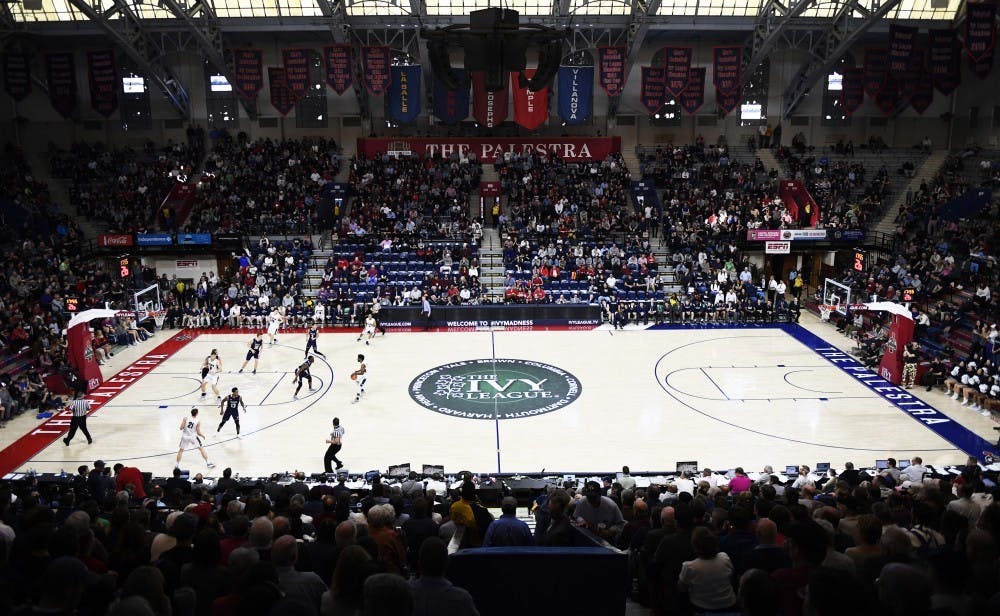Twenty years ago, I was a senior at the University of Pennsylvania and Sports Editor of The Daily Pennsylvanian. During that time, I traveled to campuses such as Penn State, Temple and Villanova to watch our men’s basketball team play games before large community crowds. These teams often wore licensed merchandise, played games on commercial television, and participated in post-game media press conferences.
Nevertheless, something was highly unusual here. For all the money that these athletes generated for their schools by playing a highly commercialized form of college basketball, the athletes never were allowed to keep any of the revenue, or to earn money independently. Even as the football and men’s basketball coaches began to earn seven-figure salaries, the NCAA Principle of Amateurism continued to prohibit college athletes from signing even small endorsement deals with local campus businesses.
Under the current system of college sports, it is not surprising that many young, elite athletes turn professional at the first available opportunity. For example, Tim Thomas, who is almost exactly my age, left Villanova after just his freshman year to enter the 1997 NBA draft. Even if Thomas enjoyed being a college student, the NCAA rules, as written, presented him with a Hobson’s choice – get an education now, or leave and help your family escape poverty.
This summer — now as a tenured professor at the City University of New York and a lecturer at the Wharton School — I had the opportunity to testify before the California legislature on behalf of the Fair Pay to Play Act, which is a bill that will require California colleges, beginning in 2023, to allow student-athletes to sign endorsement deals. While California is the first state to pass such a bill, there are similar bills now percolating in states including New York, New Jersey, and Pennsylvania. I believe a bill to allow college athletes to endorse products is needed to bring equity to the college sports marketplace.
Mandating that colleges allow their athletes to sign endorsement deals is a step in the right direction for at least three reasons. First, college athletes serve as the primary labor force behind the $13 billion college sports industry, but do not reap any of the financial rewards of their labor. Second, allowing elite college athletes to earn money makes it more feasible for low-income athletes to stay in school and continue working toward their degree. Finally, the current NCAA system in which more than 1,200 independent member colleges collectively agree to prohibit athletes from earning money by endorsing products likely violates antitrust law by illegally restraining trade in sponsorship markets.

Since the California Fair Pay to Play Act was signed into law on Sept. 30 of this year, many “leaders” in higher education have spoken against the bill. Some argue that states should stay out of the business of college sports and advocate for laissez-faire policies. These individuals, however, ignore that, without government intervention, it is in the economic interest of the NCAA’s leaders not to implement reforms. Indeed, as history has shown, the speed of the NCAA’s reform on issues pertaining to college athlete rights is directly proportional to the intensity of legal pressure placed on the college sports trade association.
Other opponents of granting college athletes the right to sign endorsements have claimed these reforms will open opportunities for elite football and men’s basketball players but not for athletes in other, less popular sports. That again is untrue. Even if the opportunities to sign with major apparel sponsors are most likely for football and men’s basketball players, the movement toward the free market could enhance opportunities for other athletes, including gymnasts, swimmers, and volleyball players. Hayley Hodson, a former Stanford volleyball player who similarly testified on behalf of the California bill, has testified that she could have endorsed a sunglasses brand in exchange for free glasses if not for the current NCAA rules.
Finally, some opponents simply believe that young men and women who play college sports should not be granted the opportunity to earn money because they will simply squander it. But this argument ignores the reality that college is the perfect time for young men and women to have the opportunity to learn about money. If colleges want to offer money management workshops for all of their students (athletes and non-athletes alike), this might be a good thing. But the solution to even bona fide concerns about how certain student-athletes will spend their first endorsement paycheck should not be to deny them of the fruits of their labor. Rather, the answer is for schools to do exactly what they are designed to do: educate their students.
MARC EDELMAN is a Professor of Law at the City University of New York’s Baruch College Zicklin School of Business and a lecturer at the Wharton School. He wrote for The Daily Pennsylvanian from 1995-99.









